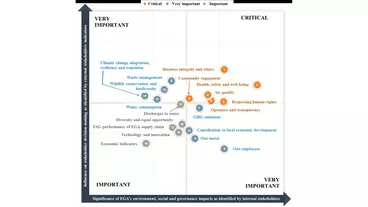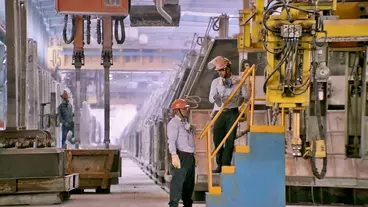Global Aluminium Associations call for action on market-distorting behaviour at Global Trade Forum
Canadian, European and US Aluminium Associations urge concrete steps toward rules-based trade. During the OECD Global Trade Forum in Paris, France, senior leaders from the aluminium associations of Canada, Europe and the United States called on governments to take urgent actions to reform government policies and practices that distort the global aluminium market.
In a joint statement, Jean Simard, president and CEO of the Aluminium Association of Canada; Gerd Götz, director general of European Aluminium; and Ryan Olsen, vice-president, Business Information and Statistics for the Aluminum Association, said: “Given the extent and duration of the harm suffered by the aluminium industry, we are calling for swift, focused and decisive action on market-distorting behaviour and excess capacity in both the upstream and downstream sectors. On behalf of our respective member companies, we stand ready to support governments and international organisations with our knowledge, data and commitment to articulate improved trade rules and to restore normal market functions so that all producers throughout the aluminium value chain can compete under conditions of fairness and transparency.”
The three representatives spoke in a panel discussion on the aluminium sector, as part of a full-day conference devoted to the issues of levelling the playing field and identifying a multilateral path forward for addressing trade distorting government support across a range of sectors.
Discussion in the session drew on the OECD’s January 2019 report, titled Measuring Distortions in International Markets: The Aluminium Value Chain. The report, which forms part of broader OECD work to measure government support across sectors including agriculture, fossil fuels and fisheries, is the first OECD has produced on the aluminium industry specifically. The study shows that non-market forces, including state subsidies, are responsible for much of the recent increase in global aluminium capacity, with impacts along the entire industry value chain.
Using publicly available data, the report examined state support for 17 of the world’s largest aluminium companies. While each of the 17 firms received some level of government support, industry participants highlighted their concerns about the nature and scale of support in some countries. “The fact that fully 85 percent of the identified subsidies went to five aluminium producing firms in China, representing USD70 billion in direct support from the Chinese government over a five-year period is of great concern,” said the three associations in their joint statement. “The OECD evidence underscores the need for urgent action to level the playing field for the aluminium sector globally.”

With the UK Government’s Spring Budget set to be released in March, Aluminium Federation (Alfed) CEO Tom Jones makes a robust case for government support in safeguarding the future of the UK aluminium industry.

Sustainability is one of the core values at EGA, with three pillars: safeguarding the environment, social responsibility and good governance.

The European Aluminium (EA) association calls upon the EU Commission to collaborate with European industries when negotiating trade agreements with third countries.
